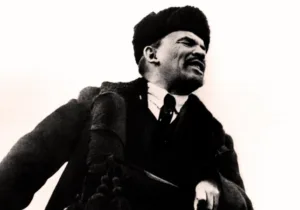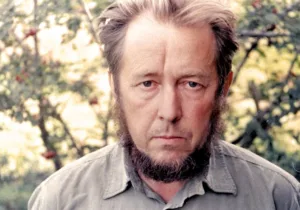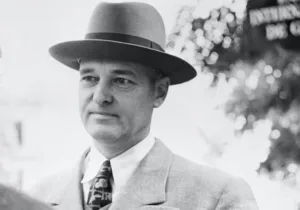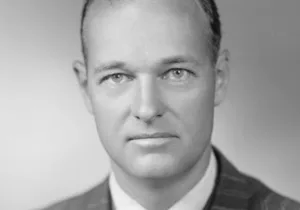The United States and much of the Free World resisted the Soviet Union and its proxies across five decades. Providentially, that resistance was successful, but no thanks to Bernie Sanders, who even now seems unsure the right side prevailed.
In a May 18 New York Times interview, Sanders reiterated his 1980s praise for the Soviets and proxies like Nicaragua’s Sandinista dictatorship. The senator was queried about his 1985 Nicaragua visit as a then Vermont mayor to celebrate the Sandinistas’ sixth anniversary of Marxist rule. He addressed a Sandinista crowd of hundreds of thousands some of whom were chanting: “Here, there, everywhere, the Yankee will die.”
To that crowd Sanders bellowed:
“After many years of economic and political domination, Nicaragua is determined not to be a banana republic anymore, and it’s free to make its own decisions. Is this a crime?”
To The Times Sanders offered no regrets for his Nicaragua sojourn or the anti-American crowd, instead explaining:
Of course there was anti-American sentiment there. This was a war being funded by the United States against the people of Nicaragua. People were being killed in that war.
The Sandinistas were a Soviet and Cuban supported insurgency who shot their way into power in 1979, overthrowing a longtime dictator so as to erect their own Leninist tyranny. The U.S., concerned Nicaragua was becoming an East Bloc outpost in Central America, at times backed an anti-Marxist insurgency against the Sandinistas.
When asked by The Times if in 1985 he had properly understood Nicaragua’s Marxist ruler, Sanders refused to answer, instead blurting out: “Do you know that the United States overthrew the government of Chile way back?” He then faulted America for igniting “fascism” in Chile, recalled the U.S. role in overthrowing Guatemala’s leftist government in 1954, and claimed the U.S. overthrew Brazil’s government, presumably in the 1964 military coup. He also declared the U.S. must not overthrow Venezuela’s current socialist regime.
The Times asked Sanders if his views about the Soviet Union have changed since the 1980s, when he praised aspects of Soviet life. No, he responded, he knew then that the USSR was an “authoritarian dictatorship” that “provided things to people either free or inexpensively, but the quality was not very good.”
In the 1980s Sanders didn’t seem to criticize the Soviets often, preferring to aim his fire at the Reagan Administration. As The Times reported, he blasted U.S. support for El Salvador against its pro-Soviet guerrilla insurgency, condemned the 1983 U.S. military overthrow of Cuban-aligned Marxists in Grenada, and derided U.S. nuclear rearmament in Western Europe.
As a Vermont mayor in 1984, Sanders wrote to a Sandinista official: “My hope is that in at least some small way, the City of Burlington can play a role in reversing President Reagan’s policies in Central America.” After Sanders returned from his 1985 trip to Nicaragua, he effusively invited the Sandinista despot to visit Vermont and regretted U.S. media hadn’t “reflected fairly the goals and accomplishments of your administration.”
In 1988 Sanders made a similarly fawning visit to the Soviet Union, praising Communist health care and housing. Now he insists: “I was going to do everything that I could to prevent a nuclear war between the United States and the Soviet Union.” But in 1989 he made a solidarity visit to Cuba, hailing its “free health care, free education, free housing.”
There were no plausible excuses in the 1980s for flirting with tyrannies like the USSR or its obedient proxies in Cuba and Nicaragua. They were well known as totalitarian prison states that murdered, tortured, and imprisoned opponents while strangling and impoverishing their populations. They gladly hosted visiting Western apologists like Sanders as propaganda props.
Thirty years later, there’s even less pretext for having cuddled with those tyrants. But Sanders denies any regrets and insists he was and is merely opposing American interventionism. Yet noninterventionists can make principled arguments without asserting gross fallacies about abominable regimes.
Successful American and Free World resistance against the Soviet Union’s police state alternative to Western democracy was heroic and providential. Sanders tragically was one of many Cold War dupes who pandered to the Dark Side, preferring grudges against their own country over the truth about Communist crimes.
Among the dupes were many Western church elites who like Sanders pilgrimaged to the USSR, Cuba, and Nicaragua, under the pretext of peacemaking. They denounced America but rarely if ever criticized Marxist tyrants or sympathized with their countless victims. Like Sanders, they claimed to be seekers of justice but they abetted some of the most criminal regimes ever to plague humanity.
There remains today a significant strand of Christian social thought that conflates rote condemnation of America with virtuous sophistication and silence about the crimes of adversarial regimes as modesty. A more discerning Christian witness will admit America’s vices and virtues while also offering solidarity with oppressed peoples everywhere.
Unapologetic leftists who rooted for the Cold War’s losing side are helpful reminders for today. Tyrants are never on the right side of history, because the God of history cares for the oppressed and ultimately will set all captives free.






